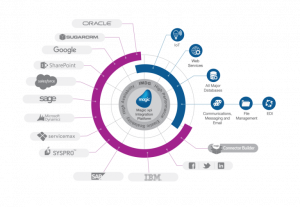10 Tips for CRM System Integration Projects (Part 2)

Part 2 – CRM System Integration Projects
10 Tips
In our previous post ” 10 Tips for CRM system integration projects about CRM integration” We discussed five best practices to help ensure that your CRM systems integration project is a success.
The team at Integral are specialists in code-free CRM integration – so whether it’s Salesforce, Microsoft Dynamics CRM, Sugar CRM, in fact, any CRM, we know how to help you extend the capability of it, delivering you greater efficiencies and return on investment.
Here are the next tips:
1. Define change management procedures
Some organizations lack the formal methodology to handle change orders. In addition, changes to the CRM and other systems being integrated may not be locked down during the integration project. The result can be chaotic from a requirements, implementation, and testing perspective.
3. Use consultants when necessary
Integration may be new territory for your IT staff and management. Try supplementing your experience with proven consultants or consulting firms that can leverage experience from a wide array of CRM integration projects, especially your particular vendor.
2. Manage users’ resistance to change
Introducing change to an organization always carries with it the risk of institutional or market resistance. Make sure the processes have been vetted by stakeholders and customers and that they are introduced properly so as to gain maximum adoption and adherence.
4. Secure ongoing support
New or unproven integration infrastructure represents a risk factor. Make certain vendor experts are available to back up your team, not only with technical bugs but with implementation experience and best practice advice and/or services.
5. Test early and often
Test plans should be introduced early. Test scripts and automated testing may be able to help ensure accelerated and more complete discovery of problems early in the CRM integration project.
Projects with CRM are instrumental in improving customer service, facilitating intra-department communication, and streamlining labor-intensive processes. However, ensuring the success of CRM system integration projects requires anticipating every hiccup on the way and taking necessary measures to avoid common mistakes because of the complexity of these projects and their impact on all customer-related business processes.






